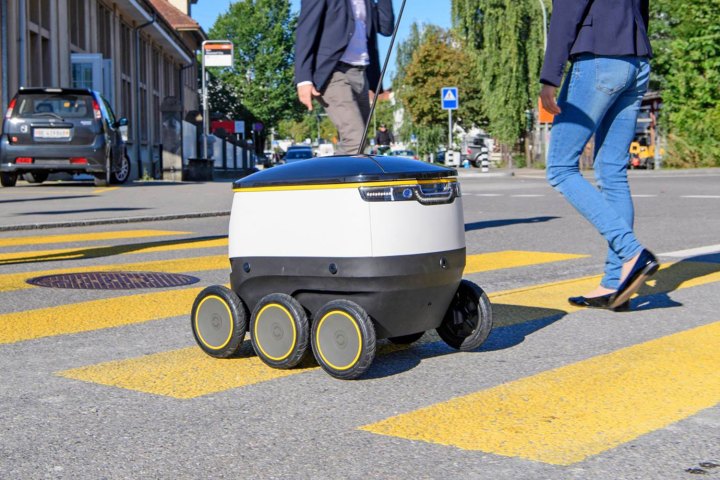
While a growing number of cities have been green-lighting trials for wheel-based delivery robots, a San Francisco supervisor has decided they’re a safety hazard and wants them banned, according to Recode.
Startups such as Starship Technologies and Marble have recently been testing out their tech on the city’s sidewalks, with the latter partnering with Yelp Eat24 to deliver take-out orders to hungry customers. The robots have a top speed of 4 mph and carry their consignment in a closed compartment, navigating the streets using multiple cameras, an array of sensors, and GPS software.
But supervisor Norman Yee is worried they could cause a pedestrian pile-up and wants them taken off the streets. He’s particularly concerned about seniors, those with disabilities, and children, as he believes these groups are at most risk of colliding with the robots.
Yee told Recode that San Francisco’s sidewalks are “made for people, not robots,” adding that a law banning the diminutive delivery bots would be “consistent with how we operate in the city, where we don’t allow bikes or skateboards on sidewalks.” Yee said talks with the companies failed to satisfy him, prompting the official on Tuesday to propose legislation banning the machines.
In trials conducted in San Francisco to date, the robots have had a human supervisor walking close by to ensure everything runs smoothly, and no calamitous accidents have so far been reported.
But as San Francisco mulls a ban, states such as Virginia and Idaho seem more open to the technology, recently giving the go ahead to companies who want to try out similar tech on their turf. In addition, Starship Technologies, for example, is currently conducting tests in Silicon Valley, California just a short distance from San Francisco, as well as on the other side of the country in Washington, D.C.
It’s not certain that Yee will get his way, but the concerns he raised highlight the difficulties faced by firms hoping to transform the way we receive delivered goods at home or at the office, with developers of delivery drones facing even tougher regulations.
Starship’s Henry Harris-Burland told Digital Trends that his company understood “the concern that Supervisor Yee is sharing and would like to engage with the city to discuss the safe operation of delivery robots that benefit local businesses and residents,” adding that the bots have so far “met millions of people and travelled tens of thousands of miles on sidewalks across more than 60 cities.”
Marble CEO Matt Delaney said his company shares Supervisor Yee’s commitment to safety, telling Digital Trends it’s “at the core of everything that we do.” Delaney was keen to highlight the key safety features of its robot, including its use of LiDAR, camera, and ultrasonic sensors while adding that they “travel at the speed of a typical pedestrian and are built to behave politely as good citizens of the sidewalk.”
While it’s easier to see why regulators are twitchy about the idea of drones for deliveries, fear that ground-based delivery bots could also cause chaos is something we’ve heard little about until now. It suggests, however, that the technology has a lot more than sidewalks to navigate before it can truly be set free on the nation’s streets.


